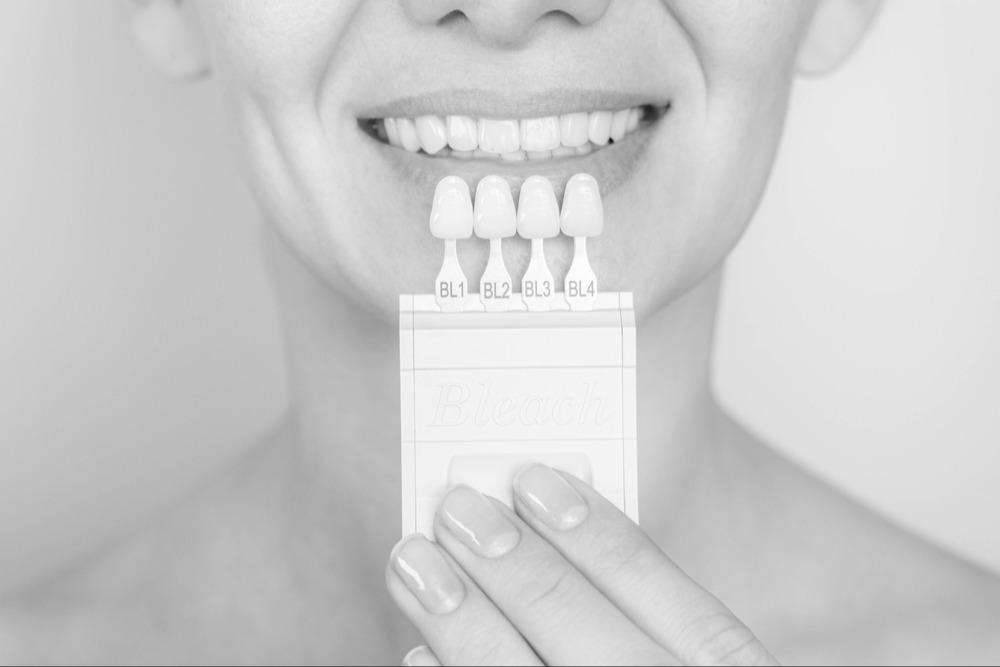
How Long After Tooth Extraction Can I Eat?
At The London Road Dental Practice, we understand that undergoing a tooth extraction can be a significant event, often accompanied by concerns about post-operative care and recovery. One of the most common questions we encounter is, “How long after tooth extraction can I eat?” In this blog, we will provide you with comprehensive guidelines to ensure a smooth recovery and optimal oral health following your procedure.
Immediate Aftercare: The First 24 Hours
Immediately after a tooth extraction, it’s crucial to allow a blood clot to form in the socket to aid the healing process. Here are some key points to keep in mind:
- Avoid Eating: For the first few hours after the extraction, avoid eating entirely to prevent disturbing the clot.
- Soft Foods and Liquids: Once the numbness has worn off, you can consume soft foods and liquids such as yoghurt, smoothies, and soups. Avoid using straws, as the suction can dislodge the clot.
- Temperature Matters: Stick to lukewarm or cold foods and drinks. Hot items can increase blood flow and potentially cause the clot to dislodge.
The First Few Days: Gradual Introduction of Foods
As your mouth begins to heal, you can gradually reintroduce more solid foods into your diet:
- Day 2-3: Continue with soft foods. Mashed potatoes, scrambled eggs, and apple sauce are good choices. Chew on the side opposite the extraction site to avoid irritation.
- Day 4-7: Gradually incorporate foods with more texture, such as pasta, soft rice, and cooked vegetables. Still, be cautious and avoid hard, crunchy, or chewy foods.
What to Avoid During Recovery
To ensure optimal healing, there are certain foods and habits you should steer clear of:
- Hard and Crunchy Foods: Nuts, chips, and raw vegetables can disrupt the healing process.
- Sticky and Chewy Foods: Foods like gum, caramels, and sticky candies can dislodge the clot or stitches.
- Spicy and Acidic Foods: These can irritate the extraction site and cause discomfort.
- Alcohol and Tobacco: Both can interfere with healing and increase the risk of complications.
Long-Term Considerations
- Hydration: Keep hydrated with plenty of water. Avoid carbonated and caffeinated beverages initially.
- Oral Hygiene: Maintain gentle oral hygiene. Brush and floss as usual but avoid the extraction site to prevent disruption.
When to Resume Normal Eating Habits
Most patients can return to their normal diet within one to two weeks, depending on the complexity of the extraction and individual healing rates. It’s essential to follow your dentist’s specific post-operative instructions and attend any follow-up appointments to monitor your progress.
FAQs
Q: How soon after tooth extraction can I eat normally?
A: Most patients can resume normal eating habits within one to two weeks, but this varies based on individual healing rates and the complexity of the extraction.
Q: Can I drink coffee after a tooth extraction?
A: It’s best to avoid hot beverages, including coffee, for the first 24-48 hours post-extraction to prevent disturbing the clot.
Q: When can I brush my teeth after an extraction?
A: You can brush your teeth gently, avoiding the extraction site, the day after the procedure. Be very gentle around the extraction area.
Q: What should I do if the extraction site is bleeding?
A: Bite down gently on a gauze pad placed over the extraction site. If bleeding persists, contact your dentist.
Contact Us
If you have any concerns or need further guidance following a tooth extraction, don’t hesitate to contact The London Road Dental Practice. Our experienced team is here to support you every step of the way to ensure a smooth and comfortable recovery.

Top 10 Reasons Why You Need Dental Implants
Dental implants are an innovative and effective solution for replacing missing teeth. They offer numerous benefits that go beyond traditional dentures or bridges. Here are the top ten reasons why you should consider dental implants:
- Natural Look and Feel
Dental implants are designed to look, feel, and function like natural teeth, providing a seamless and comfortable fit within your mouth. - Durability and Longevity
With proper care, dental implants can last a lifetime, making them a cost-effective long-term solution compared to other dental prosthetics. - Improved Oral Health
Implants help maintain the natural structure of your jawbone, preventing bone loss and maintaining facial integrity. - Enhanced Comfort
Unlike dentures, implants become a permanent part of your mouth, eliminating the discomfort and inconvenience of removable dentures. - Better Speech
Dental implants enable you to speak without worrying about slipping dentures, ensuring clear and confident communication. - Easier Eating
Implants function like natural teeth, allowing you to eat your favourite foods without pain or discomfort, enhancing your overall diet and nutrition. - Boosted Confidence
A full set of teeth contributes significantly to self-esteem. Implants restore your smile, helping you feel more confident in social and professional settings. - Convenience
Unlike dentures that require special adhesives and maintenance, dental implants can be cared for just like natural teeth, with regular brushing and flossing. - Preservation of Adjacent Teeth
Implants do not require the alteration of adjacent teeth, unlike bridges, which helps in preserving the long-term health of your natural teeth. - High Success Rate
Dental implants have a high success rate, making them a reliable option for tooth replacement. Advances in dental technology continue to improve outcomes.
FAQs About Dental Implants
Q: How painful is the dental implant procedure?
A: Most patients report minimal discomfort during the procedure, which is typically performed under local anesthesia. Post-operative pain can be managed with prescribed medication.
Q: How long does it take to recover from dental implant surgery?
A: Initial healing can take a few weeks, but the complete integration of the implant with the jawbone can take several months.
Q: Are dental implants suitable for everyone?
A: Most adults in good health are candidates for dental implants, but an individual assessment is necessary to determine suitability.
Q: How do I care for my dental implants?
A: Care for implants as you would your natural teeth, with regular brushing, flossing, and dental check-ups.
Q: What is the success rate of dental implants?
A: Dental implants have a success rate of up to 98%, making them a highly effective solution for tooth replacement.
Contact Us Today
Ready to transform your smile with dental implants? Contact us at The London Road Dental Practice to schedule your consultation and learn more about how dental implants can improve your oral health and quality of life.

Can You Have Dental Implants with Gum Disease?
Addressing Gum Health Before Dental Implants at The London Road Dental Practice
At The London Road Dental Practice, we often encounter patients with concerns about the compatibility of dental implants and existing gum disease. It’s crucial to understand how gum health impacts the success of dental implants and the necessary steps to take before undergoing this transformative procedure.
The Impact of Gum Disease on Dental Implants
Gum disease, also known as periodontal disease, can severely affect the foundation of your oral health, including your gums and the bones that support your teeth. For dental implants to be successful, a healthy and stable foundation is essential. Implants rely on the bone to anchor securely, and inflamed or receding gums can compromise this.
Preparing for Dental Implants
Before considering dental implants, it’s important to address and treat any active gum disease. Our team at The London Road Dental Practice focuses on restoring your gum health to create a stable environment for implant placement. This may involve:
Deep Cleaning: To remove tartar and bacteria below the gum line.
Medication: To control infection and promote healing.
Surgery: In severe cases, to restore diseased gums and bone.
The Path to Dental Implants
Once your gum disease is effectively managed or treated, assessing your candidacy for implants is the next step. Our dental professionals will evaluate your oral health, including bone density and gum condition, to determine if implants are viable for you.
FAQs About Dental Implants and Gum Disease
Q: Can treating gum disease guarantee the success of dental implants?
A: While treating gum disease significantly improves the chances of successful implants, individual outcomes can vary based on overall health, the severity of the disease, and adherence to treatment.
Q: How long after treating gum disease can I get implants?
A: The timeline can vary; however, it typically takes a few months to a year to restore gum health sufficiently before proceeding with implants.
Conclusion
If you’re considering dental implants and have concerns about gum disease, The London Road Dental Practice is here to guide you through the necessary steps to improve your oral health and explore your options for a restored smile.
Contact Us Today
Ready to take the next step towards a healthier, more confident smile? Contact us at The London Road Dental Practice for a comprehensive evaluation and personalised treatment plan.

Comprehensive Dental Implant Services Explained
At The London Road Dental Practice, we offer a wide range of dental implant services designed to cater to various needs, from single tooth replacements to complex cases requiring advanced procedures. This blog post aims to shed light on our comprehensive dental implant solutions, ensuring you have all the information needed to make informed decisions about your oral health.
Single Tooth Implants: Tailored for individuals missing a single tooth, our implants provide a durable and aesthetically pleasing solution, restoring both function and appearance.
Multiple Tooth Implants: For those missing several teeth, multiple tooth implants offer a secure and effective way to replace them, enhancing oral health and smile aesthetics.
Partial and Full Denture Replacement: We provide implant-supported dentures for a more stable and comfortable alternative to traditional dentures, suitable for partial and full denture replacements.
Same-Day Teeth: Our same-day teeth service allows for the immediate replacement of missing teeth, combining implant technology with precision dentistry for rapid results.
Treatment of Failing Dental Implants: We offer expert care and solutions for failing dental implants, ensuring the longevity and success of your implant treatment.
Advanced Cases: Our practice is equipped to handle advanced cases, including those requiring complex procedures or extensive rehabilitation.
Bone Grafting: For patients with insufficient bone density for implant placement, our bone grafting services can prepare the site for a successful implant.
Our dental implant services are designed with your health and satisfaction in mind. With state-of-the-art technology and a commitment to excellence, our team is ready to help you achieve the smile you’ve always wanted.
Dental Implant FAQs
What is the success rate of dental implants?
Dental implants have a high success rate, often exceeding 95%, making them a reliable choice for tooth replacement.
How long do dental implants last?
With proper care, dental implants can last a lifetime, making them a durable and cost-effective solution.
Are dental implants painful?
We ensure a comfortable experience, with procedures performed under local anesthesia and options for sedation if needed.
How do I care for my dental implants?
Regular brushing, flossing, and dental check-ups are essential to maintaining the health of your dental implants.
Contact Us Today
If you’re considering dental implants or have any concerns about your oral health, contact us today on 01530 832392 to schedule a consultation. Let us guide you through the process and help you restore your smile with confidence.

The Ultimate Guide to Avoiding Dental Damage
At The London Road Dental Practice in Leicestershire, we understand the importance of maintaining a healthy smile and ensuring the longevity of your dental health. Similar to The Denture People, who specialise in caring for your dentures, we focus on providing comprehensive dental care to avoid common dental issues, including damaged or broken dentures.
Common Causes of Dental Damage
Improper Cleaning: Just like dentures, natural teeth and dental appliances can suffer from improper cleaning techniques. Using harsh brushing methods or abrasive cleaning agents can harm your teeth’s enamel or damage dental appliances.
Improper Fit: Dental appliances that don’t fit properly, such as braces, retainers, or dentures, can cause discomfort, and even damage, if not addressed promptly. Regular dental check-ups ensure that any adjustments needed are made in time.
Wear and Tear: Natural teeth are also subject to wear and tear. Factors such as grinding, clenching, and the consumption of hard or acidic foods can accelerate this process.
Accidents: Unforeseen accidents can lead to immediate dental damage. It’s crucial to seek professional dental care immediately to mitigate any long-term effects.
Tips for Maintaining Dental Health
- Gentle Cleaning: Use a soft-bristled toothbrush and non-abrasive toothpaste to clean your teeth gently yet effectively. Ensure that dental appliances are cleaned as per the dentist’s instructions.
- Regular Check-Ups: Frequent visits to your dentist can help in early detection and prevention of potential dental issues.
- Proper Hygiene Practices: Develop a comprehensive dental hygiene routine that includes flossing and the use of an antiseptic mouthwash to reduce the risk of gum disease and tooth decay.
- Protective Measures: Utilise mouthguards during sports and consider using a night guard if you grind your teeth while sleeping.
- Healthy Diet: Maintain a balanced diet that’s low in sugary and acidic foods to prevent tooth decay and enamel erosion.
Finally
At The London Road Dental Practice, we’re dedicated to providing exceptional care to ensure your smile remains bright and healthy. By understanding the common causes of dental damage and following our maintenance tips, you can avoid unnecessary dental harm and enjoy the confidence that comes with a healthy smile.
Remember, the key to avoiding dental damage is regular care and professional oversight. Whether it’s natural teeth or dental appliances, let us help you maintain your oral health for years to come.

Unleash Your Smile This Valentine’s Day
Forget the predictable chocolates and the fleeting fragrance of flowers. This Valentine’s Day, ignite a love story that transcends the temporary and blooms into a lifelong embrace of confidence and radiance – your smile! At London Road Dental, we believe your grin is more than just pearly whites; it’s a beacon of self-love, a gateway to connection, and an invitation to share moments of unbridled joy with your loved one.
Imagine…
-
The first kiss: Tender, tentative, yet filled with the promise of something more. But what if a nagging stain or a chipped tooth whispers insecurity instead of excitement? Let us help you brush away those doubts and paint the town red (wine and all!) with a grin so confident, that it melts hearts faster than chocolate. We’ll guide you through a personalized brushing and flossing routine, ensuring every crevice gleams and every breath speaks confidence.
-
Candlelit dinners and whispered secrets: The soft glow of the flame illuminating your face. But what if shadows dance across uneven teeth, casting a veil on your inner sparkle? Embrace the brilliance within! Our cosmetic dentistry solutions, from subtle white fillings to transformative implants, can tailor your smile to match the radiance of your love story.
-
Laughter echoing through the night: Uninhibited, infectious, the sound of pure joy. But what if dental anxiety holds you back, turning giggles into nervous smiles? Fear not! We understand the delicate dance between excitement and apprehension. Our gentle touch, calming environment, and even sedation options create a safe space where you can shed anxieties and let your authentic smile shine through.
Remember, love blooms where it’s nurtured. Regular check-ups at London Road Dental are your secret weapon for maintaining a healthy smile – not just for a fleeting celebration, but for a lifetime of shared laughter, passionate kisses, and whispered secrets. Invest in preventive care, and reap the dividends of confidence, not just on Valentine’s Day, but every chapter of your love story.
This Valentine’s Day, choose a gift that speaks volumes, a gift that lights up hearts and ignites passion. Visit London Road Dental and let us craft a smile story that will captivate your loved one and warm your heart for years to come. It’s not just about the roses; it’s about unlocking the love story already waiting to bloom on your face.
Contact us today and schedule your appointment. Let’s make this Valentine’s Day one you’ll truly smile about!

Embracing Dental Health in 2024
As we welcome the New Year at London Road Dental Practice in Leicestershire, it’s the perfect time to renew our commitment to dental health. This 2024, let’s focus on adopting habits that not only enhance our smiles but also contribute positively to our overall health. Join us as we delve into practical ways to improve dental health and embrace a year of brighter smiles.
The Vital Role of Dental Health
Maintaining good dental health is more than just keeping a bright smile; it’s integral to our general well-being. Poor oral health can potentially lead to serious health complications, including cardiovascular disease, respiratory infections, and even complications in diabetes management.
New Year Dental Health Goals
- Consistent Dental Visits: Make a resolution to see your dentist at London Road Dental Practice regularly. Routine check-ups play a key role in preventing dental problems and ensuring early detection and treatment.
- Brushing Technique Mastery: It’s not just about brushing twice a day; it’s also about doing it right. This year, focus on refining your brushing technique, utilizing fluoride toothpaste and spending adequate time for thorough cleaning.
- Daily Flossing Routine: Pledge to make flossing a daily ritual. Flossing is essential in removing debris and plaque that brushing alone cannot reach.
- Dietary Choices for Dental Health: Embrace a diet low in sugars and rich in fruits, vegetables, and calcium. Such a diet not only supports dental health but also boosts overall wellness.
- Quitting Tobacco: Tobacco use can lead to various oral health issues, including gum disease and oral cancer. Commit to quitting tobacco for a healthier mouth and body.
Tips for Sustaining Your Dental Goals
- Set Achievable Objectives: Start with manageable goals and gradually build up your dental care regimen.
- Progress Monitoring: Keep a log or use digital tools to track your daily oral hygiene practices.
- Invest in Quality Dental Care Products: Equip yourself with effective tools like high-quality toothbrushes and floss to aid in your dental care routine.
- Stay Informed: Enhance your understanding of oral health through reading, consultations with your dentist, or attending educational sessions at London Road Dental Practice.
At London Road Dental Practice, we’re excited to support you on your journey to improved dental health in 2024. Remember, every small step counts towards a healthier, more radiant smile. Here’s to a year filled with positive dental habits and sparkling smiles!
For more information please contact us on 01530 832 392

Enhancing Smiles with Veneers
At The London Road Dental Practice, our commitment to excellent oral healthcare extends to offering state-of-the-art cosmetic treatments like dental veneers. Veneers are a popular choice for those looking to enhance their smile, and here’s why:
Transform Your Smile
Veneers are thin shells designed to cover the front surface of teeth. They instantly transform the appearance of your smile, correcting issues like discoloration, chips, and gaps. At our practice, we offer porcelain veneers, renowned for their natural appearance and durability.
Customised for You
Each set of veneers is custom-made to fit your teeth perfectly, ensuring a natural look and comfortable fit. Our team works closely with you to select the right shade and shape, aligning with your unique facial features and aesthetic goals.
Minimal Invasiveness, Maximum Impact
One of the most significant advantages of veneers is their minimally invasive nature. They require minimal alteration of your natural teeth, preserving more of your tooth structure compared to other procedures like crowns.
Durable and Long-Lasting
Porcelain veneers are incredibly durable and resist stains better than natural teeth. With proper care, they can last for decades, making them a long-term investment in your smile and confidence.
Boost Your Confidence
A bright, even smile can significantly boost your self-confidence. Veneers provide a quick and effective way to achieve the smile you’ve always wanted, positively impacting your social interactions and self-esteem.
Expert Care at London Road
Our experienced team at The London Road Dental Practice ensures that your veneer treatment is as comfortable and effective as possible. We use the latest technology and techniques to deliver results that not only look great but also contribute to your overall oral health.
In conclusion, veneers offer a versatile and effective way to enhance your smile. At The London Road Dental Practice, we are dedicated to helping you achieve the smile of your dreams with our expert care and state-of-the-art treatments.
To learn more about veneers and other cosmetic treatments we offer, visit us at The London Road Dental Practice, where your smile is our priority.

Emergency Dentistry for Children
Emergency Dentistry for Children: What Parents Need to Know
As parents, we’re hardwired to protect our children from any kind of distress or harm. However, despite our best efforts, emergencies can and do happen – dental emergencies included. At London Road Dental in Leicester, we understand that a child in pain is every parent’s worst nightmare, which is why we’re committed to providing swift and compassionate care to address dental emergencies in children effectively.
Recognising a Dental Emergency in Children
A dental emergency can come in various forms, whether it’s a toothache, a knocked-out tooth during playtime, or a bitten tongue or lip. Recognising when your child is experiencing a dental emergency is crucial. If they are complaining of severe pain, have lost a permanent tooth, or have a loose tooth that’s causing discomfort, it’s time to seek immediate care.
Immediate Steps: Containing the Situation
Before you head to London Road Dental, there are a few steps you can take to manage the situation. For instance, if a tooth has been knocked out, it’s important to keep it moist, either by placing it in milk or having your child hold it in their mouth if they’re old enough. A cold compress can help alleviate swelling, and over-the-counter pain relief can be used to manage discomfort.
Seeking Professional Help
When it comes to your child’s oral health, timely professional intervention is key. London Road Dental in Leicester is equipped to handle a wide range of paediatric dental emergencies with a gentle touch and calming presence that will soothe both you and your child.
Building a Dental First Aid Kit
Being prepared can make a significant difference in managing a dental emergency. We recommend putting together a small dental first aid kit containing items such as gauze, a small container with a lid, ibuprofen, and a cold pack. Having these items at hand can help you respond effectively to an unexpected situation.
The Importance of Follow-Up Care
After an emergency visit, follow-up care is essential to ensure your child’s dental health is on the right track. Our team at London Road Dental will provide you with the necessary guidance and support for post-emergency care and long-term dental health strategies.
London Road Dental: Your Partner in Paediatric Dental Care
At London Road Dental in Leicestershire, we don’t just handle dental emergencies; we’re also dedicated to providing comprehensive paediatric dental care. We believe in the importance of educating families about preventive measures to minimise the risk of emergencies and encourage regular check-ups to maintain your child’s dental health.
When a dental emergency strikes, remember that you’re not alone. London Road Dental is here to provide the care and support your child needs to get back to their happy, healthy self. Contact us immediately in case of a dental emergency, or visit our website to learn more about our paediatric dental services and preventive care measures.
Final Thoughts
No parent ever wants to see their child in distress, but knowing how to react can alleviate the situation until professional help is available. By recognising the signs of a dental emergency, having a plan in place, and knowing that London Road Dental is ready to help, you can rest assured that your child’s smile is in safe hands.
For any dental emergency in the Leicester, please call London Road Dental on 01530 832 392

Common Misconceptions About Dental Implants
One topic that frequently comes up in our consultations is dental implants. Although implants have become increasingly popular over the years, a lot of misinformation still circulates. In this blog, we aim to debunk some of these common myths and misconceptions about dental implants.
Myth 1: Dental Implants Are Noticeable and Unnatural-Looking
The Truth: Thanks to modern technology and materials, dental implants are designed to mimic the look and feel of natural teeth. They are custom-fitted and colour-matched to blend seamlessly with your existing teeth, making them virtually indistinguishable.
Myth 2: The Procedure Is Extremely Painful
The Truth: While no surgical procedure is entirely pain-free, dental implant surgery is generally considered to be more comfortable than extractions. Local anaesthesia is used to numb the area, and post-operative discomfort can usually be managed with over-the-counter pain medication.
Myth 3: Dental Implants Are Not Durable
The Truth: Contrary to this myth, dental implants are incredibly durable and can last for many years, if not a lifetime, with proper care. They are made from titanium, a material that naturally fuses with bone, providing a stable foundation for the crown.
Myth 4: Anyone Can Get Dental Implants
The Truth: Although dental implants are a viable option for many people, they are not suitable for everyone. Factors such as jawbone density, gum health, and overall medical condition can influence your eligibility for the procedure.
Myth 5: Dental Implants Require a Lot of Maintenance
The Truth: Dental implants require the same level of care as natural teeth. Regular brushing, flossing, and dental check-ups are sufficient for maintaining your implants.
Myth 6: Dental Implants Are Only for Older Adults
The Truth: Dental implants are an option for anyone missing one or multiple teeth, regardless of age. Whether you’ve lost a tooth due to decay, injury, or any other reason, implants can provide a permanent solution.
We hope this blog has clarified some of the common misconceptions surrounding dental implants. At The London Road Dental Practice in Leicestershire, we are committed to providing you with accurate information and quality care. If you’re considering dental implants and reside in Leicestershire, feel free to book a consultation with us to discuss your options.
Thank you for reading. If you have further questions, don’t hesitate to reach out to us on 01530 832 392
